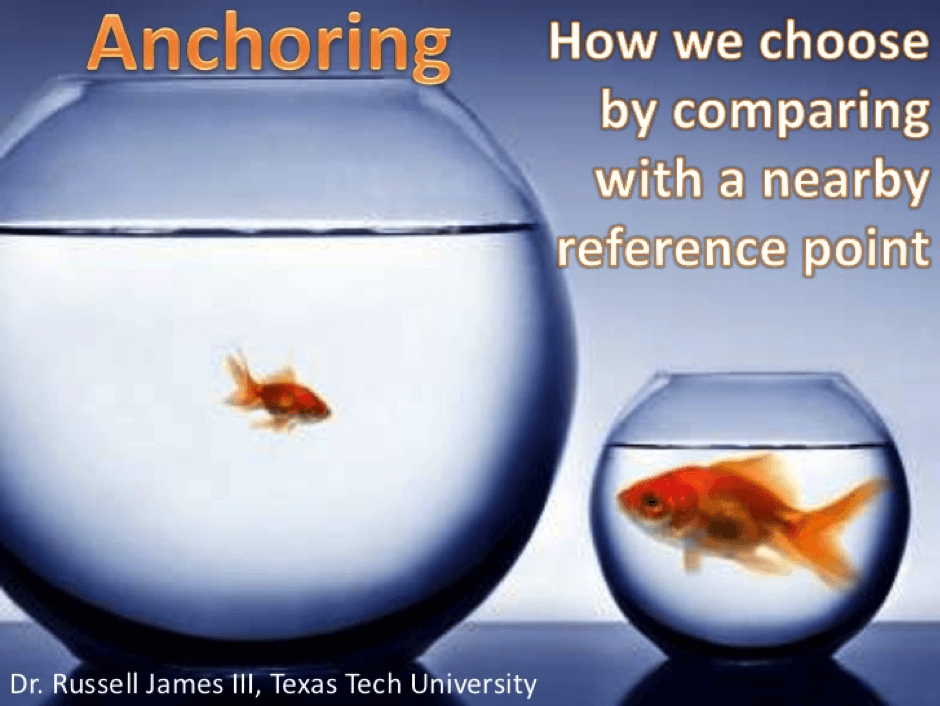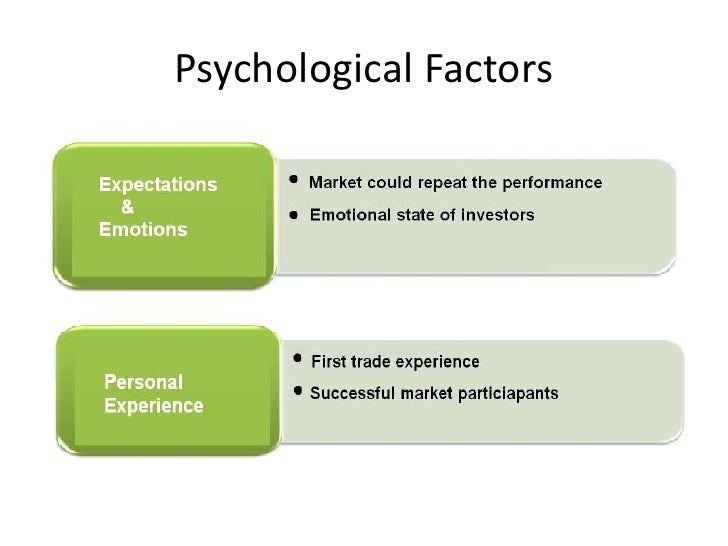

Numerous examples of the Anchoring effect can be found in the commercial sector: during sales, it is common practice to show the original price crossed out with a sale price right below it in order to give customers the anchorage point of the higher pre-sales price and make it seem like a good deal comparatively. All the further available information tends to get. The experiment showed that the two groups gave significantly different answers – of 50 and 67 respectively – precisely because they had been influenced by the anchoring age values initially given. The anchoring effect is the tendency of the human mind to focus on the first available information. The first group were asked whether they thought he died before or after age 9, and the second group before or after age 140 (both anchors far removed from reality as Gandhi actually died at 87 years old).

In one study, two groups of students were asked to guess at what age Mahatma Gandhi died. Many experiments have shown that it is difficult to avoid the Anchoring effect, as it affects our thinking even when we’re unaware of it. The Anchoring effect will affect the way we negotiate, the prices we consider to be acceptable, the quality or value we perceive goods to hold, etc. In other words, through the anchoring effect, we use ‘anchors’ or reference points to make decisions, rather than thinking rationally and objectively to make the best decision overall.

Once an anchor is set, judgements are made by using this anchor as a point of reference and are more often than not biased by whatever this anchor happens to be. Anchoring therefore occurs when individuals use an initial piece of information in order to make subsequent judgements. The human mind does not consider the value of something based on its intrinsic value but rather compares different things against one another, making decisions based on these comparative values. In all other situations, you will be aware of the anchor and you will think that it does not affect you, but you will be deceiving yourself.The Anchoring effect, first studied by Tversky & Kahneman (1974), is a cognitive bias that causes people to rely too heavily on the first piece of information they receive as a point of reference. In the case of a negotiation, you must focus on the minimum amount that the opponent would accept, or on what it would mean for the opponent not to reach an agreement.
#THE ANCHORING EFFECT PSYCHOLOGY DEFINITION HOW TO#
How to avoid this bias? It is frankly difficult, if not impossible. The average sentence of the judges who got a 3 was of 5 months of prison. The judges which got a 9 proposed a sentence of 8 months of prison, on average. Before answering loaded dice were thrown on the table so that the result was always going to be a 3 or a 9. In a disturbing experiment, a fair number of judges were asked to establish a prison sentence for a woman who had made a robbery. In fact, your judgment will be seriously influenced by any number, even if it is not informative and has no relation to the amount you are estimating. This effect is so strong that it reaches absurd limits. From there, a discount or a much better offer if you buy now, will be hard to resist even if the product remains expensive. The seller always makes the first move by fixing the price of a product or service, and gains advantage in the negotiation, since your estimate of the product value will be unconsciously anchored on that price. The effects of anchoring are used in a usual and quite effective way in marketing. I’m pretty sure that you’re tired of seeing images like this in the online world: Even if you think you’re one of those who do not let themselves be influenced, a house will seem more valuable to you if it has established a high price than if it has a low price. In the same way, when you make an estimate of the price of something, you are influenced by the initial price they ask for. For example, if someone asks you if Gandhi was over one hundred and four years old when he died and then asks you how old you think Gandhi was when he died, you will make a much higher estimate than if you had been asked first if Gandhi was over forty-four years old when he died. The anchoring effect is the principle that people tend to unconsciously latch onto the first fact they hear, basing their decision-making on that fact.


 0 kommentar(er)
0 kommentar(er)
